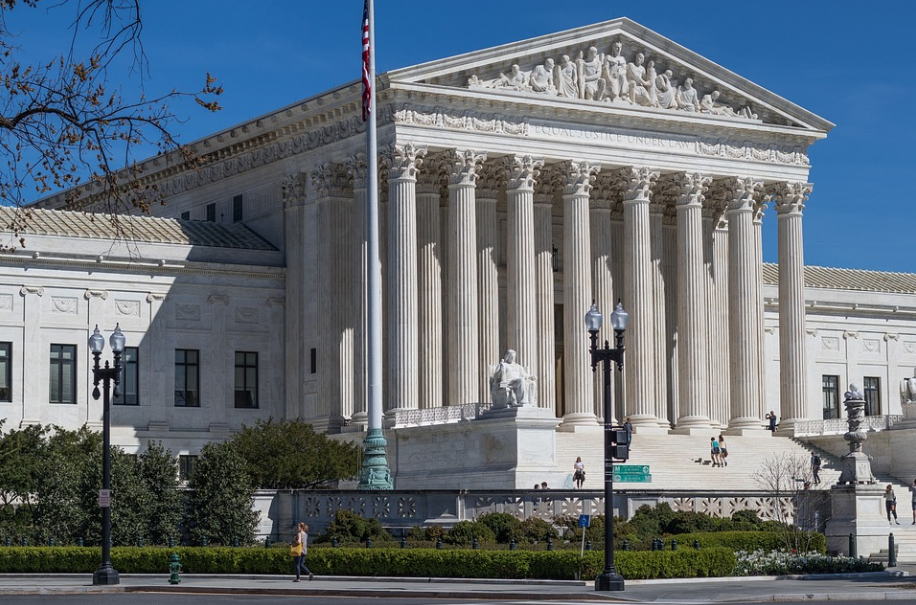The Supreme Court of the United States (SCOTUS) should be handing down some big decisions the next couple of months that we’ve been hearing about since last fall. The Court’s pace of decisions has been much slower this term than usual, SCOTUSblog notes. I don’t know why that is, but I do know that a massive dump of opinions is coming between now and the end of June.
Here are some of the big cases to be watching:
The Law and Race
One of the first cases the Court heard this term was Merrill v. Milligan, which came straight out of Alabama and was argued by my friend Eddie LaCour. In this case, the ACLU challenged Alabama’s congressional district map after we made some minor adjustments following the 2020 census. A three-judge panel ordered Alabama to redraw its lines to create a second majority-black district. LaCour immediately asked SCOTUS to step in and stay the mandate, and his advocacy was successful. The Court then heard oral argument on the merits this fall.
In my opinion, this case is about whether lawmakers must make race the chief factor in how it creates congressional districts. Isn’t looking at race above all else the kind of thing that got us in trouble in the first place?
Related to that is Students for Fair Admissions, Inc. v. Harvard College. In this case, Harvard is being sued for discriminating against Asian Americans in its admissions process. The Supreme Court held in Grutter v. Bollinger (2003) that some forms of racial discrimination in admissions are okay, as they make up for past discrimination. In this case, the Court is considering overruling Grutter.
In his famous Plessy v. Ferguson (1896) dissent, Justice Harlan wrote, “Our Constitution is color-blind, and neither knows nor tolerates classes among citizens.” Today, the American left has more in common with the Plessy majority than it does with Justice Harlan. After we made so much progress in eliminating racism from our legal system, the left wants to bring it back in a different form. We will see whether SCOTUS lets that happen.
Religious Freedom
Two incredibly important religious-freedom cases are also before the Court: 303 Creative, LLC v. Elenis, and Groff v. DeJoy. In 303 Creative, a Christian creative professional named Lorie Smith of Colorado does not wish to use her artistic talents to promote same-sex weddings. The question is whether the Free Speech Clause of the First Amendment protects her right not to speak on this issue. At oral argument, the liberal bloc of the Court lost its mind when it tried to make this about “discrimination.” But Justice Barrett stole the oxygen from the room by pointing out that Smith wouldn’t promote an opposite-sex wedding if the couple had been divorced in a way contrary to Scripture and then sought to remarry. This means, without a doubt, that the objection is to the particular message, not to LGBT people.
Justice Alito also turned the left’s argument on its head when he pointed out that if Colorado won, a black Santa would be forced to take pictures with a white child dressed in a KKK outfit. So in other words, the left favors free speech for some but not for others. Who would have guessed?
I wrote about Groff extensively a few weeks ago. In short, this could make huge gains for religious freedom in the workplace.
Student Loan Forgiveness
In Biden v. Nebraska and Department of Education v. Brown, the Court is considering the legality of Biden’s student-loan forgiveness plan. On the merits, anyone who can read English can see that the Biden administration is stretching its statutory authority to forgive student loans far beyond what it says. The biggest question in these cases is whether the challengers have standing to sue. But if they can get past that hurdle, then the Court should have no trouble concluding that Biden exceeded his authority.
Big Tech
Finally, in Gonzalez v. Google and Twitter v. Taamneh, the Court is considering the limitations of big tech’s legal immunity. Google involves the limitations of liability under Section 230, which is the law that generally provides immunity to internet platforms. Twitter asks whether a platform like Twitter can be liable for aiding and abetting terrorists who use the platform.
These cases have high potential to be game changers. Let’s be praying for our justices as we are commanded to do (I Timothy 2:1-2), asking God that they would impartially apply the law regardless of passion or prejudice.
Matt Clark is the President of the Alabama Center for Law and Liberty, a conservative nonprofit law firm that fights for limited government, free markets, and strong families in the courts. His column appears every Friday in 1819 News. The opinions expressed in this column are those of the author. The views and opinions expressed here are those of the author and do not necessarily reflect the policy or position of 1819 News. To comment, please send an email with your name and contact information to Commentary@1819News.com.
Don't miss out! Subscribe to our newsletter and get our top stories every weekday morning.










